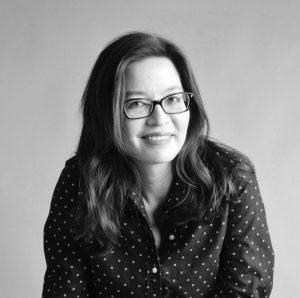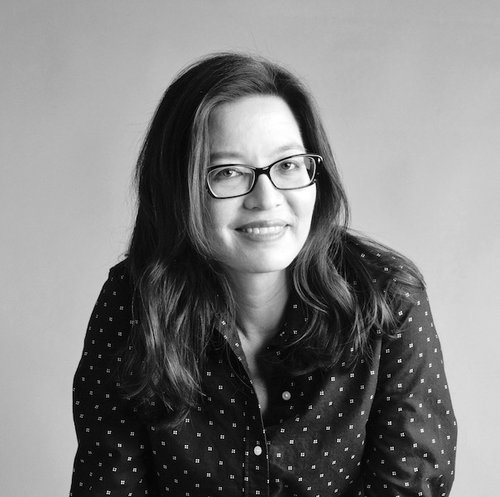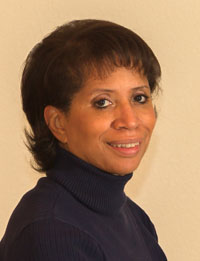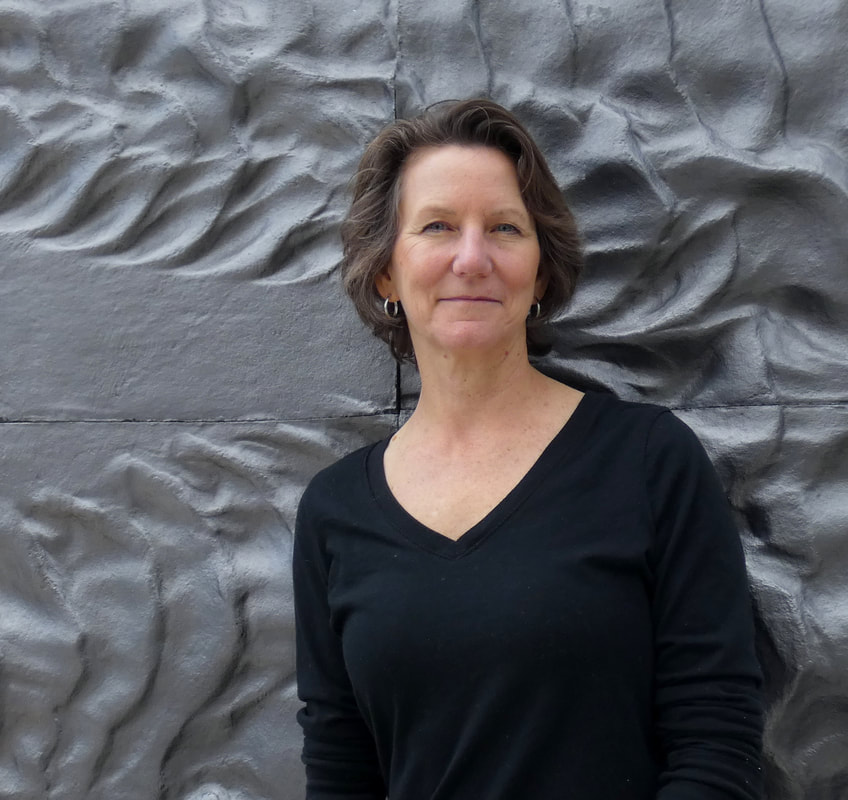 It’s been a while since I brought you a good old fashioned Open Mic post, so today’s offering is a real treat. For over a decade Los Angeles-based Naomi Kim Eagleson has helped hundreds of writers achieve their publication goals through her agency The Artful Editor. Naomi knows a thing or two about the business – she has an MFA in creative writing from the Iowa Writers Workshop and her own work has appeared in numerous magazines, periodicals and anthologies. I spoke with her recently about her approach to editing, the ups and downs of the publishing industry and how the COVID-19 pandemic is impacting her work.
It’s been a while since I brought you a good old fashioned Open Mic post, so today’s offering is a real treat. For over a decade Los Angeles-based Naomi Kim Eagleson has helped hundreds of writers achieve their publication goals through her agency The Artful Editor. Naomi knows a thing or two about the business – she has an MFA in creative writing from the Iowa Writers Workshop and her own work has appeared in numerous magazines, periodicals and anthologies. I spoke with her recently about her approach to editing, the ups and downs of the publishing industry and how the COVID-19 pandemic is impacting her work.
OM: What inspired you to become and editor? How long have you been doing this?
NE: I was in college studying English literature and looking for a part-time job in book publishing. One of my professors was the editor-in-chief of a prominent literary journal and I asked if I could intern at his journal, and happily he said yes. This was back in 2000, which makes it twenty years ago now. I worked there for about three years, then took a break to attend an MFA program, where I taught undergraduate creative writing for a semester. After I finished the program, I returned to Hawai‘i and taught at a school for gifted children, then at an all-girls Catholic high school, then at a local university. When I moved to Los Angeles, California, I decided to stop teaching and work in publishing instead.
OM: Your have a really large team of editors you work with. That’s unusual in that so many freelance editors work solo or just with a small team. How did you decide on going this way? And how do you choose the editors you work with as part of your team?
NE: After I moved to LA, I worked as a freelance editor for three years and copyedited and proofread for publishers and independent authors. Expanding The Artful Editor from a solo operation to a team was an organic process. Editors who stumbled upon my website would ask if they could partner with me. At first, I would refer clients to them, but after a few months I decided to keep these clients “in house” and manage the projects. As new projects flowed in, I expanded the team to meet the demand. Of course, it would be nice to work with a smaller team, but since everyone runs their own businesses, an editor isn’t always available when I need them.
OM: You’re a writer as well. Do you ever struggle going back and forth between the two mindsets?
NE: I do struggle sometimes. But I don’t edit much these days and I try to prioritize my own writing. I do enjoy running a business and working from home, which is convenient during a pandemic! And I like giving work to freelancers and helping writers get the editorial feedback they need to improve their books. It’s immensely gratifying to hear clients succeed in their writing or grow into better, more confident writers. Being a writer is a tough career path to follow, because it requires years of solitary work, and the competition in the publishing marketplace can be fierce.
OM: You pretty much edit all genres of fiction and nonfiction, but do you find that you get more of one or two genres than others?
NE: I don’t track the numbers, but it seems we edit a lot of literary fiction, upmarket fiction, thrillers, science fiction and fantasy, young adult, and children’s books. In the nonfiction category, we edit a good number of self-help books and memoir.
OM: Do you ever work with agents or publishing houses on their clients’ work? Or do you stick solely to individual writers?
NE: Agents occasionally send authors my way, and I once partnered with an agent who was launching her new agency. Also, some writers who already have an agent will reach out to us for help with their new manuscript.
We occasionally edit for publishing houses, but the majority of our clients are individual writers who are seeking agent representation or are self-publishing.
OM: You also offer coaching services. Do you get a lot of clients seeking this? And do you find them to generally be receptive to what you suggest for them?
NE: Not many clients seek book coaching, but those who do hire us love the process. A typical coaching arrangement can last six months to several years. It depends on the writer’s goals and how long it takes for them to achieve them. Goals can include finishing a rough draft, submitting their manuscript to agents, finding a publisher, and so on. And yes, generally, clients are receptive to our advice.
OM: Have you ever had to fire a client?
NE: Yes, I have fired clients, but it doesn’t happen often. Most writers are pleasant, honest people and easy to work with. However, if I find they are unreceptive to editorial advice, or are frequently requesting last-minute edits, or are late with payments, I will cancel their project.
OM: Independent publishing has become much more common and acceptable these days. What percentage of your clients would you say are going that route?
NE: I would say about half of my clients are planning to self-publish and the rest are seeking to get a literary agent. Some of them aren’t sure which path to take, so I usually recommend they try to get an agent first or submit directly to publishers.
OM: The publishing industry has changed so much over the last twenty years. How has your end of the industry changed since you got into it?
NE: There are more freelance editors than in-house editors (on salary). And with the rise of Amazon and the increasing acceptance of self-publishing, the number of books published each year increases, and with it the demand for editors to critique and copyedit those books.
OM: What kind of ghostwriting services do you offer?
NE: We can take a rough or incomplete draft and rewrite it, or we can write a book from scratch. The latter usually entails interviewing the client and writing a draft based on the transcribed interviews. Then the book will go through additional editing to get it ready for publishing.
OM: The COVID-19 pandemic has been playing havoc on the publishing industry. How has all this impacted you? And do you see it having a long-term impact on the industry?
NE: Since the pandemic started, I’ve had a few clients cancel their projects or defer payment because they had recently lost their jobs. I really hope, for their sake, they can work again soon or receive some government assistance. It’s a tough time to be a writer right now. It might be too early to say what the impact of the pandemic has been, but publishers are struggling to meet their overheads, and with paper supplies growing short, they are finding it difficult to print books. Also, with bookstores being closed, those books have no place to be displayed. The good news is, e-book and audiobook sales have risen, so some authors are doing very well with those formats.
OM: What advice would you give a writer who is considering hiring an independent editor? What do they need to know before they start down this path? And are there red flags they need to think about before laying out their money?
NE: Writers should choose an editor who understands their genre and has several years of professional editing experience. They should also contact an editor a couple of months in advance of needing one. Many writers make the mistake of contacting an editor at the last minute and expecting on-demand editing. But editors are typically booked two or more months in advance. When writers rush the editorial process, the quality of the edit can suffer. It behooves the writer to schedule the edit as far in advance as possible.
As for what writers should watch out for, they should question why an editor is offering cheap rates. If they want quality editing, they should expect to pay mid- to upper-tier rates. Cheap rates can mean the editor is a novice, or taking shortcuts, or doing subpar work. The same goes for exorbitant rates. Make sure you do some due diligence before handing over your hard-earned money.
OM: I like to end with a fun question. Let’s say I can put you together with one of the following three people for a great conversation. Who would you choose and why? Your options are: musician Jack Johnson, celebrity chef David Chang or J.K. Rowling.
NE: J.K. Rowling, of course! I’d love to get into her head when she was a young, unpublished writer and learn what the process of writing the first Harry Potter book was like. I find those early years of a writer’s development fascinating, when the author was still unknown and struggling to find their voice and create their first stories.



